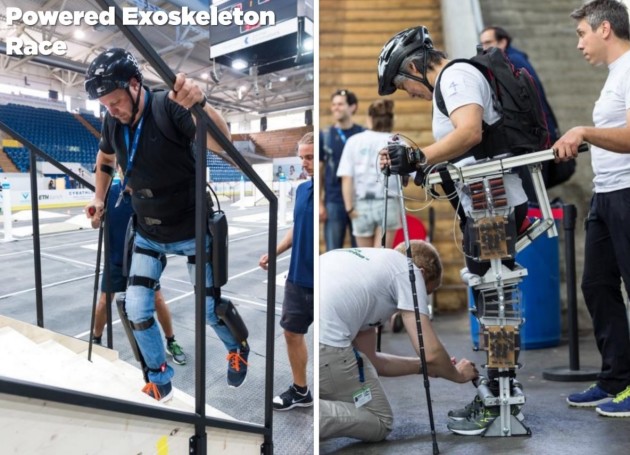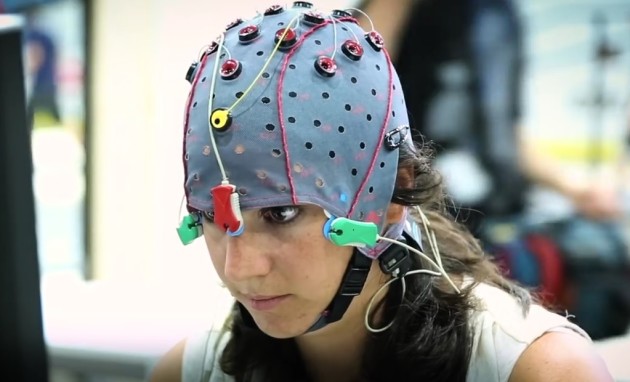WASHINGTON, D.C. – Imagine a contest for the kinds of technologies that would set Tony Stark’s nuclear-powered heart all aflutter in the “Iron Man” movies: exoskeletons, brain-computer interfaces, stair-climbing wheelchairs and bionic limbs, for example.
You don’t have to imagine it anymore: Swiss organizers are getting ready for the first-ever Cybathlon on Oct. 8 in Zurich.
This is no Hollywood publicity stunt: The Cybathlon is aimed at giving a boost to assistive devices and the millions of people around the world who use them. Fifty-five teams from 23 countries already have signed up for the games, and the organizers have put out the call for more teams to register.
The teams’ pilots will vie in six events that take advantage of exoskeletons, brain-wave controllers, prosthetic arms and legs, powered wheelchairs and muscle-stimulation bikes.
In each event, the pilots will be judged according to how they perform a series of specified tasks. For the brain-computer interfaces, that involves moving virtual racers around just by thinking about them. For the users of powered prosthetic arms, the tasks are as common as opening a bottle and carrying a box. For the exoskeleton contest, pilots will have to sit down on a plush couch, get back up and negotiate an obstacle course that includes a stairway and a front door.

We want to support the use of technology to overcome daily life’s obstacles.
Like the Paralympics, the Cybathlon will highlight the abilities of competitors who have disabilities. But organizer Robert Riener, who heads ETH Zurich’s department of health sciences and technology, said October’s event will strike a different note.
“We are not so much a sports event, and the philosophy is different,” he told GeekWire today in Washington at the annual meeting of the American Association for the Advancement of Science. “We want to support the use of technology to overcome daily life’s obstacles.”
ETH Zurich and other supporters of the Cybathlon concept staged a successful rehearsal for this year’s event last year in Zurich. Now they’re setting plans in motion for a one-day competition at the Swiss Arena Kloten in Zurich that could draw as many as 8,000 spectators, plus TV and webcast viewers worldwide.
The organizers are also planning a symposium for researchers in the field, two days before the competition.
Image: Exoskeleton competitors
During last year’s Cybathlon rehearsal in Zurich, competitors in exoskeletons negotiated an obstacle course. (Credit: Cybathlon / ETH Zurich)
FES bikers
Competitors pedal functional electrical stimulation bicycles during the Cybathlon rehearsal in Zurich. (Credit: Cybathlon / ETH Zurich)
Prosthetic arm competition
In the prosthetic arm competition, the pilots perform everyday tasks such as opening a bottle. (Credit: Cybathlon / ETH Zurich)
Wheelchair competition
A customized Segway is put through its paces in the powered wheelchair competition during last year’s rehearsal. (Credit: Cybathlon / ETH Zurich)
Riener wouldn’t mind if the Cybathlon became as much of a traditiion as the Paralympics and the Olympics. He says he’s already in contact with folks in Japan about coordinating efforts in time for the 2020 Tokyo Olympics. But Riener’s vision for the event has less to do with TV deals, and more to do with advancing technologies for assistive devices.
“We hope that in five to 10 years, some of the systems which are now being developed and showcased at the Cybathlon will be made available for people as commercial products,” he said. “The first powered exosuits are coming out … but their performance is limited.”
Your move, Tony Stark: Time to put Iron Man on the case.
